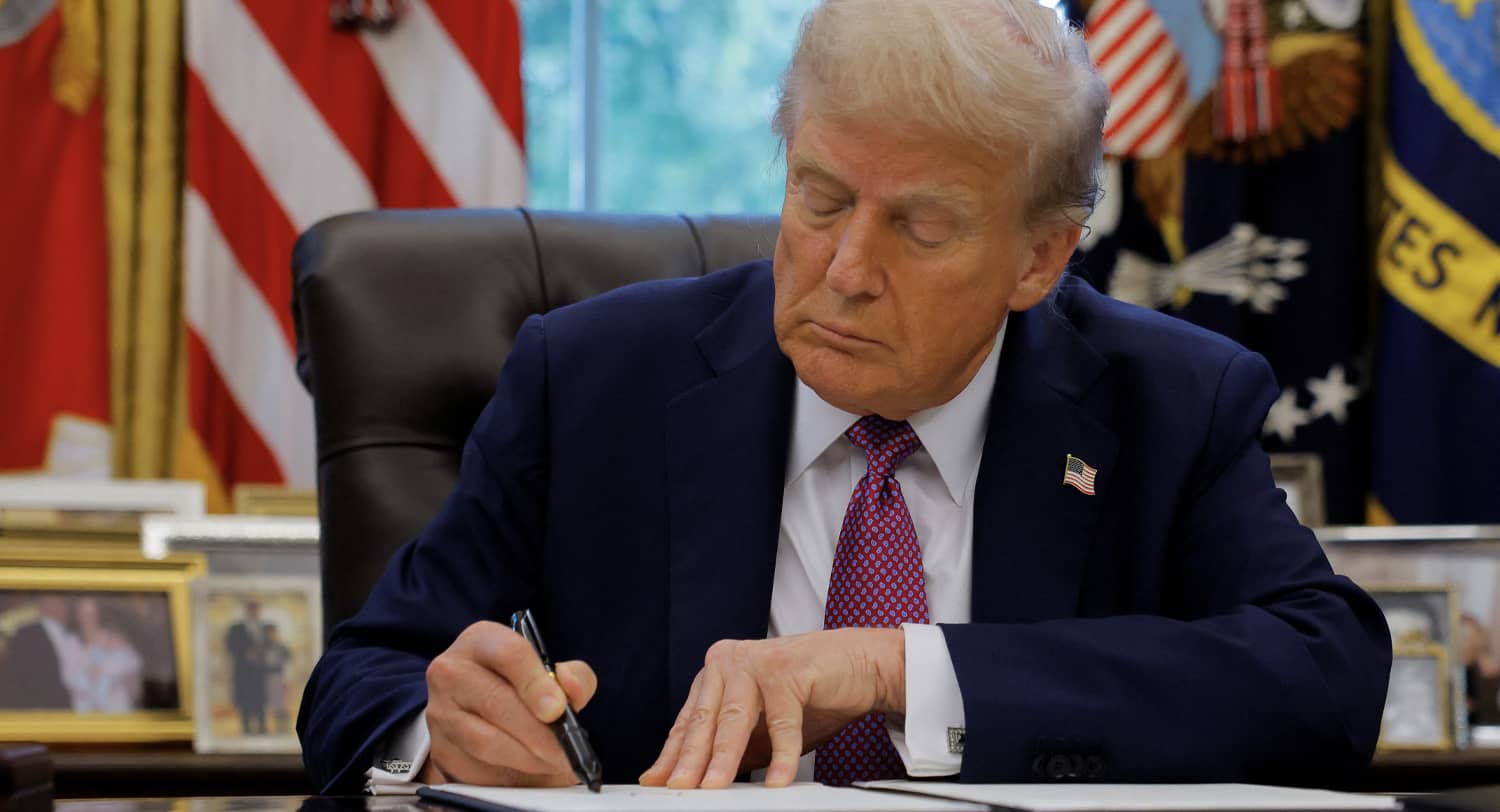Thank you President Trump.
Thank you for understanding what so many refused to confront. Thank you for doing what generations of leaders hesitated to attempt. Thank you for exposing the dark machinery that has shaped the Middle East’s tragedies for far too long.
I write as someone from an Arab and Muslim country, someone who has paid a personal price for speaking openly about extremism. My positions have drawn threats from radicals who cannot tolerate dissent. My gratitude is not political. It is moral. It is rooted in the lived reality of a region that has suffered under ideological tyranny for generations.
A profound shift is underway. What was once whispered in policy circles is now spoken aloud with clarity: the Iranian regime’s nuclear program, its constellation of proxy militias and the Islamist information war are not three separate challenges but components of a single strategic design. The United States has finally stood up to this aggression, and in so doing, has forced a reluctant world to see what it long refused to face: the belief that groups like Hamas, Hizbullah, and their ideological cousins could be moderated, integrated, or contained.
For decades, the Middle East was held hostage by a deceptive narrative: that the ideological forces destroying our societies were somehow legitimate expressions of religious faith or political resistance or some combination thereof. That was never true. These forces are instead the offspring of a single ideological parent — the Muslim Brotherhood — whose doctrine is as simple as it is destructive: if you think differently, you are a traitor; if you speak freely, you are an enemy.
The Brotherhood and the branches and offshoots created by its adherents do not debate. They denounce. They do not persuade. They intimidate. They do not defend ideas. They demand obedience.
The Trump decision to designate the Muslim Brotherhood as a foreign terrorist organization under US law was more than a policy shift. It was a moral landmark. It pierced the veil that had protected these movements for decades and revealed a truth that millions in the Arab and Muslim world had long understood but feared to say aloud.
This decision did not inflame tensions, but rather exposed and revealed their source. And it finally allowed many to speak openly about the ideological roots of the terror that has consumed our region.
Even before this moment of clarity, the region had begun to glimpse hope. The Abraham Accords opened a new chapter: the possibility of reconciliation, shared prosperity, and regional cooperation built not on illusions but on common interests and mutual respect. These Accords laid the foundations of a historic shift, one that allowed the people of the Middle East to imagine a future not defined solely by conflict.
Reconciliation cannot thrive in the shadow of those who glorify death and call for revenge. Lasting peace is impossible while organizations such as Hamas and Hizbullah hold entire populations hostage—politically, spiritually, and psychologically. They do not represent the Palestinian people or the Lebanese people. They exploit them. They feed on suffering and prolong misery to maintain power.
I learned the price of confronting this reality firsthand. On October 7, 2023, hours after one of the most barbaric massacres of innocent civilians, I wrote an article entitled “We Are All Israelis,” published in this very journal. Its purpose was clear: to remind the world that humanity must not fracture in the face of such cruelty. For telling that truth, grounded in conscience, I became a target of denunciation and threats.I am proud to have been one of the victims of the Muslim Brotherhood. Their anger is proof of the fear that truth inspires.
Today, a remarkable shift is unfolding. Voices once silenced by intimidation are beginning to rise. People who whispered privately now speak publicly. The spell of fear, cultivated over decades, is breaking. The decision to confront the Brotherhood and its ideological heirs has liberated conversations across the Arab and Muslim world. It has emboldened countless individuals—scholars, journalists, community leaders—who long felt isolated in their convictions.
Free societies are not held together by uniformity, but by the courage to disagree with integrity. The Middle East will not heal through silence. It will heal through honesty—through the willingness to name the forces that have suffocated our region and to challenge them openly.
I will continue to write and to speak because I believe in a future where dignity triumphs over fear, where young Arabs and Muslims can aspire to creativity instead of conflict, where reconciliation replaces revenge and where people are free.
My thanks extend not only to President Trump but also to those who stood with him: Secretary of State Marco Rubio, Deputy Assistant to the President Sebastian Gorka and the professionals in American federal agencies—including the CIA and FBI, and to Jared Kushner whose vision helped transform diplomatic possibility into tangible reality.
This is not about politics. This is about courage. It is about freeing millions from ideological coercion. It is about restoring hope to a region that has bled for too long.
A new Middle East is possible, governed not by fear and extremism but by dignity and opportunity. For the first time in a generation, the path forward is clear.
And for that, I offer sincere thanks.



